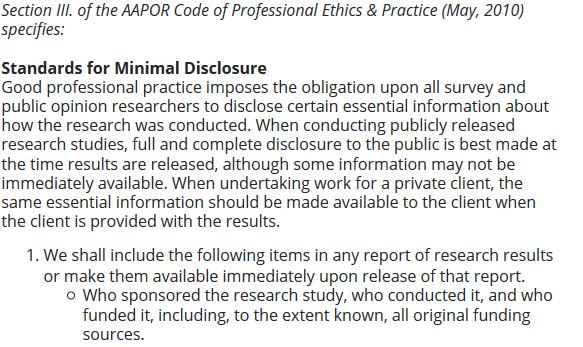My post Mass Fiscal’s Fraud by “Poll” drew some thoughtful responses and I’d like to respond to one. Highly respected MassInc Polling Group President Steve Koczela* tweeted “Perhaps transparency could have been better, but ‘fraud’?” Steve is a professional who takes his craft seriously so I respect his admonition. I’ll delve into it.
The Mass Fiscal Poll has some characteristics we commonly associate with polls. It contacted voters via phone and questioned them on a public policy issue, drawing its sample population from a list that provides phone number, gender, and partisan identification.
But, Mass Fiscal’s “poll” has other characteristics that make it seem suspicious. For one thing, it asked only one question. Many in the #mapoli audience will have read literally hundreds of political polls. Ask yourself, how many have had only one question? Then read the question over and it seems heavily weighted to produce a favorable answer. It’s not the sort of question a disinterested researcher would ask.
In another tweet, Mr. Koczela recognized that the poll was an Interactive Voice Response (IVR) poll. Fivethirtyeightpolitics defines IVR as a non-traditional poll, one that does not adhere to industry standards and is less trustworthy.
Let’s turn to transparency. Mass Fiscal does not reveal who the pollster was, only that the poll was commissioned by Mass Fiscal. I asked Mr. Koczela what the American Association for Public Opinion Research (AAPOR), the leading professional organization in survey research, asks of its members about transparency. He kindly tweeted a link to the standards which you should read, but here is how the AAPOR guidelines commence:

We know that Mass Fiscal sponsored the research study. We don’t know who conducted it. We know that Mass Fiscal funded it but we do not know who funds Mass Fiscal so we have no disclosure of “to the extent known, all original funding sources.”
Mass Fiscal Alliance is a non-profit 501(c)(4) organization. If you are wondering what that is, opensecrets.org has a handy explanation: “501(c) organizations can operate without incurring tax liability. Another major benefit, for many groups, is the ability to collect donations without disclosing donors…. The lack of disclosure can also help disguise the true nature of a highly political organization.”
That fits Mass Fiscal: it’s a highly political 501(c)(4) that does not reveal its funding source.
So we know that a “poll” was conducted by an unidentified pollster, contrary to AAPOR best practices, with one weighted question, by a less trustworthy method, commissioned by a political organization with hidden funding.
I am going to stick with the word “fraud.”
*I would like to emphasize that Mr. Koczela was nice enough to answer a few of my questions via Twitter but in no way is he responsible for any of the errors I might make and certainly not for the views I express.

